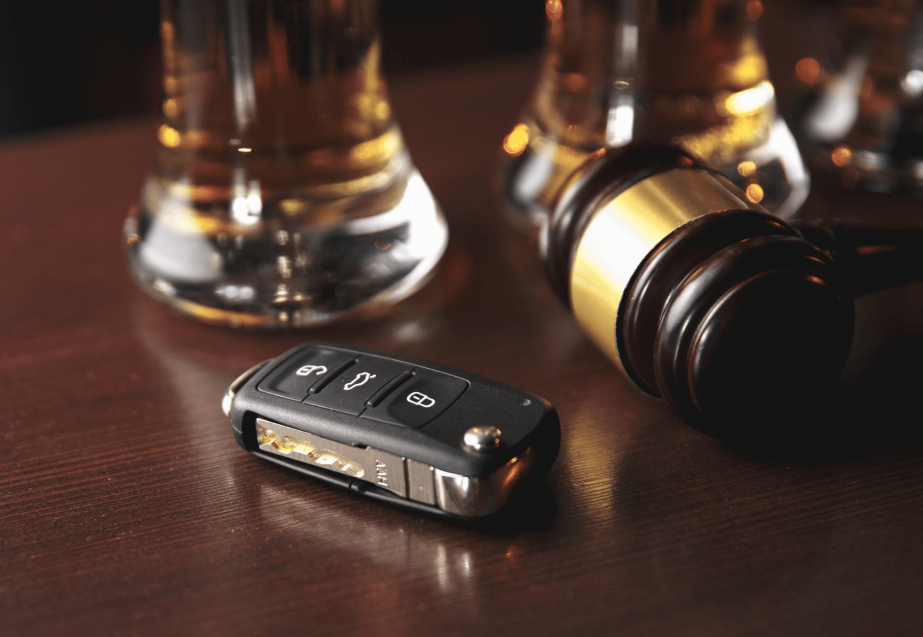
When someone is caught operating a vehicle while under the influence of drugs or alcohol, they are judged guilty of DUI or driving under the influence. A DUI conviction is a serious matter for attorneys, as it can have a substantial impact on their career and professional reputation.
Their judgment and general behavior may be impacted by this kind of conviction, which is important for successfully defending clients in court. Comprehending the characteristics of DUI convictions emphasizes the need to carefully examine an attorney’s background.
Furthermore, it is crucial to conduct extensive due investigation before selecting a lawyer. Hiring a DUI-convicted lawyer, like Katie Lewis’s Attorney, carries some risk in the form of higher fees and may jeopardize professionalism.
Due diligence helps ensure that your attorney is reliable, communicative, and transparent about their billing practices. By carefully vetting attorneys, you protect yourself from potential negative impacts on your case and financial well-being.
Steps to Vetting Attorneys
While you choose the right attorney for your DUI conviction, there are several things that you need to take. Here are some of them:
1. Conducting Background Checks
To ensure you hire a reliable attorney, start by researching their criminal history. Look for online databases and state bar association records that may provide information on past convictions.
Many state bar websites offer searchable directories detailing an attorney’s disciplinary history. Additionally, you can also request a background check from a professional vetting service specializing in legal professionals.
Verifying an attorney’s DUI conviction, like Katie Lewis Attorney, is crucial to understanding potential risks associated with their practice.
2. Evaluating Communication and Responsiveness
An attorney’s communication style and responsiveness are essential in choosing the right legal representation. Observe how quickly they respond to your initial inquiries and how they communicate during consultations.
Effective attorneys should provide timely replies and exhibit a professional and attentive demeanor. Clear and prompt communication is vital for ensuring that your case progresses smoothly and that you stay informed throughout the legal process.
3. Reviewing Fee Structures
It’s important to comprehend how an attorney bills to prevent unpleasant surprises. Ask thorough questions regarding their cost schedule, including how they bill for services and what is included in their invoice, during your initial appointment.
Get a formal quote and find out about any potential extra costs. Transparency in fees and prices also helps to avoid any surprises later on in the process and guarantees that you are completely informed of your financial obligations.
Tools and Resources for Vetting
When people say “read the reviews,” they are not wrong. Online databases and the testimonials of people who have taken help from a particular law firm of your choice can help you ensure that you are making an informed decision.
1. Online Databases and State Bar Associations
To effectively vet an attorney, utilize online resources and state bar association websites to check their criminal record and disciplinary history.
Websites like the National Discipline Data Bank and individual state bar association directories provide valuable information about an attorney’s professional background.
These tools can help you verify if an attorney like Katie Lewis Attorney has any DUI convictions or disciplinary actions against them.
When using these resources, ensure that you check for the most recent updates and verify the information from multiple sources to ensure accuracy.
2. Client Reviews and Testimonials
Client reviews and testimonials can offer valuable insights into an attorney’s performance and client satisfaction. For instance, look for reviews on reputable sites such as Avvo, Martindale-Hubbell, or Google Reviews.
Pay attention to detailed feedback about the attorney’s communication skills, case handling, and overall client experience.
Be cautious of overly positive or negative reviews that may not reflect the attorney’s true capabilities. Additionally, the reviews should be balanced by considering the overall pattern of feedback rather than individual comments.
3. Consultations and Interviews
Scheduling consultations with potential attorneys is crucial in assessing their suitability for your case. During these meetings, evaluate their communication skills and responsiveness to your questions.
Prepare questions that address their experience with DUI cases, their approach to handling such cases, and their fee structure. Furthermore, this direct interaction will help gauge whether the attorney’s background and practices align with your needs and expectations.
It also allows you to assess their professionalism and whether you feel comfortable working with them.
Ensuring Effective Representation
Finally, you must trust the lawyer who is going to represent you legally. Therefore, you must ensure that you have good communication with your legal aid.
1. Evaluating Compatibility and Trust
When selecting an attorney, it’s crucial to find someone with the necessary qualifications and experience and with whom you feel comfortable working. Compatibility with your attorney can significantly impact the effectiveness of their representation.
Suppose you have a strong rapport and trust with your attorney. In that case, it fosters open communication and collaboration, which can lead to better outcomes in your case.
Trust ensures you feel confident in their decisions and strategies, and compatibility helps maintain a positive working relationship throughout the legal process.
2. Monitoring Progress and Communication
Staying engaged with your attorney and monitoring the progress of your case is essential for ensuring that you receive effective representation.
Regularly check in for updates on your case and ensure that deadlines and court dates are met. Maintaining open lines of communication is vital—ensure that your attorney is responsive to your inquiries and addresses any concerns promptly.
If issues arise, such as delays or lack of clarity, address them immediately to avoid potential disruptions in your case. Effective communication helps in resolving issues quickly and keeps the case on track.
Additionally, thoroughly vetting attorneys is essential for effective legal representation, particularly with those who have DUI convictions.
Evaluating their background, communication practices, and fee structures helps prevent issues like poor case management and unexpected costs. Furthermore, key steps include conducting background checks, assessing communication skills, and reviewing billing practices.
This careful approach ensures you choose a competent attorney who provides transparent and reliable legal services, protecting your interests and contributing to a successful outcome.
Take the Next Step: Ensure Your Attorney is the Right Fit for Your Case
In conclusion, you must try to protect yourself from potential risks by carefully vetting attorneys before deciding. If you’re considering hiring an attorney with a DUI conviction, take the time to research their background, evaluate their communication skills, and review their fee structures.
Furthermore, utilize online databases, read client reviews, and schedule consultations to ensure you choose a reliable and effective legal representative.
Contact us today for personalized assistance in finding the right attorney for your needs. Your case deserves the best representation—don’t leave it to chance.
Read More:
- What Are The Benefits Of Hiring DWI Lawyers?
- Top Tips to Make Your Lawyer Website Rank on SERP!!!
- Justice in the Balance: The Role of Criminal Defense Attorneys











0 Reply
No comments yet.